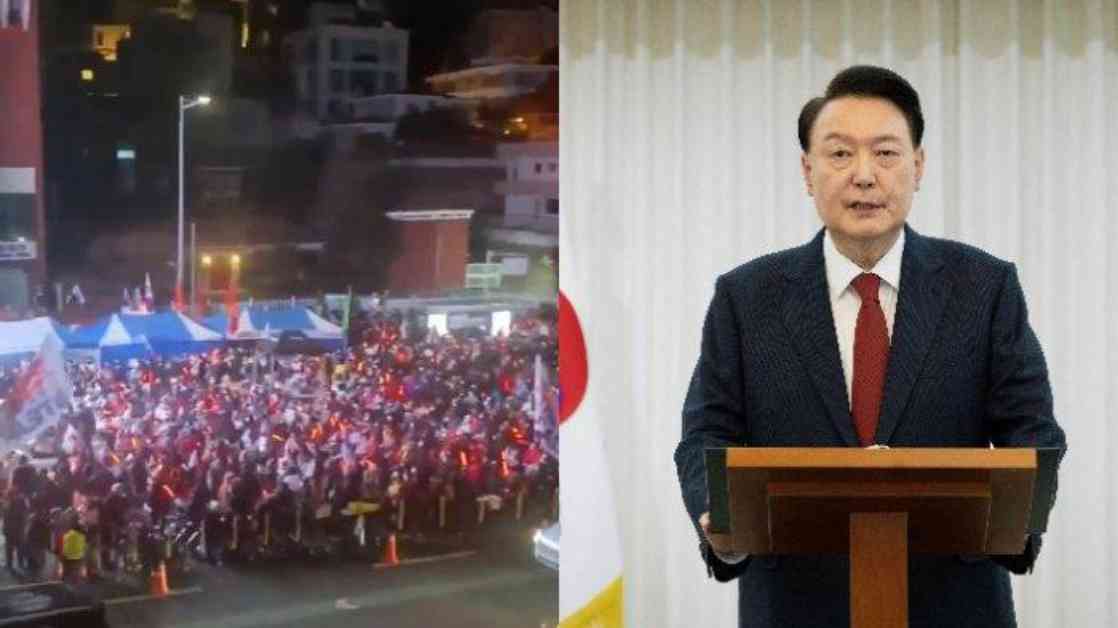Yoon Suk Yeol’s Detention Extended, Protests Heat Up in Seoul
Yoon Suk Yeol, the impeached president, has had his detention extended by the Western District Court of Seoul on Sunday, February 19, 2025. This decision was made to prevent Yoon from tampering with evidence related to the declaration of martial law he issued. The court’s ruling has sparked anger among hundreds of Yoon’s supporters, who stormed the courthouse. During the incident, riots ensued, causing damage to doors and equipment inside the building. Footage circulating showed protesters firing fire extinguishers at security guards on duty. “The situation was brought under control after the police intervened. We will pursue to the full extent those who engage in illegal acts or incite violence,” said the Seoul Metropolitan Police in their official statement quoted from The Guardian. A total of 46 protesters were arrested for their involvement in the violent acts. Around 40 individuals were reported to have sustained minor injuries, but no serious injuries were reported, according to an emergency responder.
Legal Process of Yoon Suk Yeol
Yoon Suk Yeol is currently detained at a remote facility in Seoul for the next 20 days based on a new order, after previously requesting immediate release. The court approved the extension of detention upon the request of the High-Ranking Officials Corruption Investigation Office (CIO), citing concerns that Yoon may tamper with evidence. Yoon, who also refused to attend several scheduled examinations by the CIO, argued that he had stated his position on the first day of his arrest. “We are confident there is no reason or need to answer back-and-forth questions,” said Yoon’s lawyer, Seok Donghyeon. Yoon Suk Yeol has become the first president in South Korean history to be arrested. This arrest followed a brief martial law enforcement, which sparked massive protests and political tension nationwide.
48-Hour Detention Order
The arrest warrant for Yoon is valid for 48 hours, meaning authorities have a limited time to interrogate the impeached president. The political situation in South Korea is currently highly tense, with many awaiting further developments regarding Yoon Suk Yeol’s case and its impact on the country’s stability.
The unfolding events surrounding Yoon Suk Yeol’s detention and the subsequent protests in Seoul have gripped the nation, raising questions about the future of South Korea’s political landscape. How will this unprecedented arrest shape the country’s governance moving forward? As tensions escalate and the legal process unfolds, one thing remains clear: the eyes of the nation are fixed on the outcome of this historic moment.














